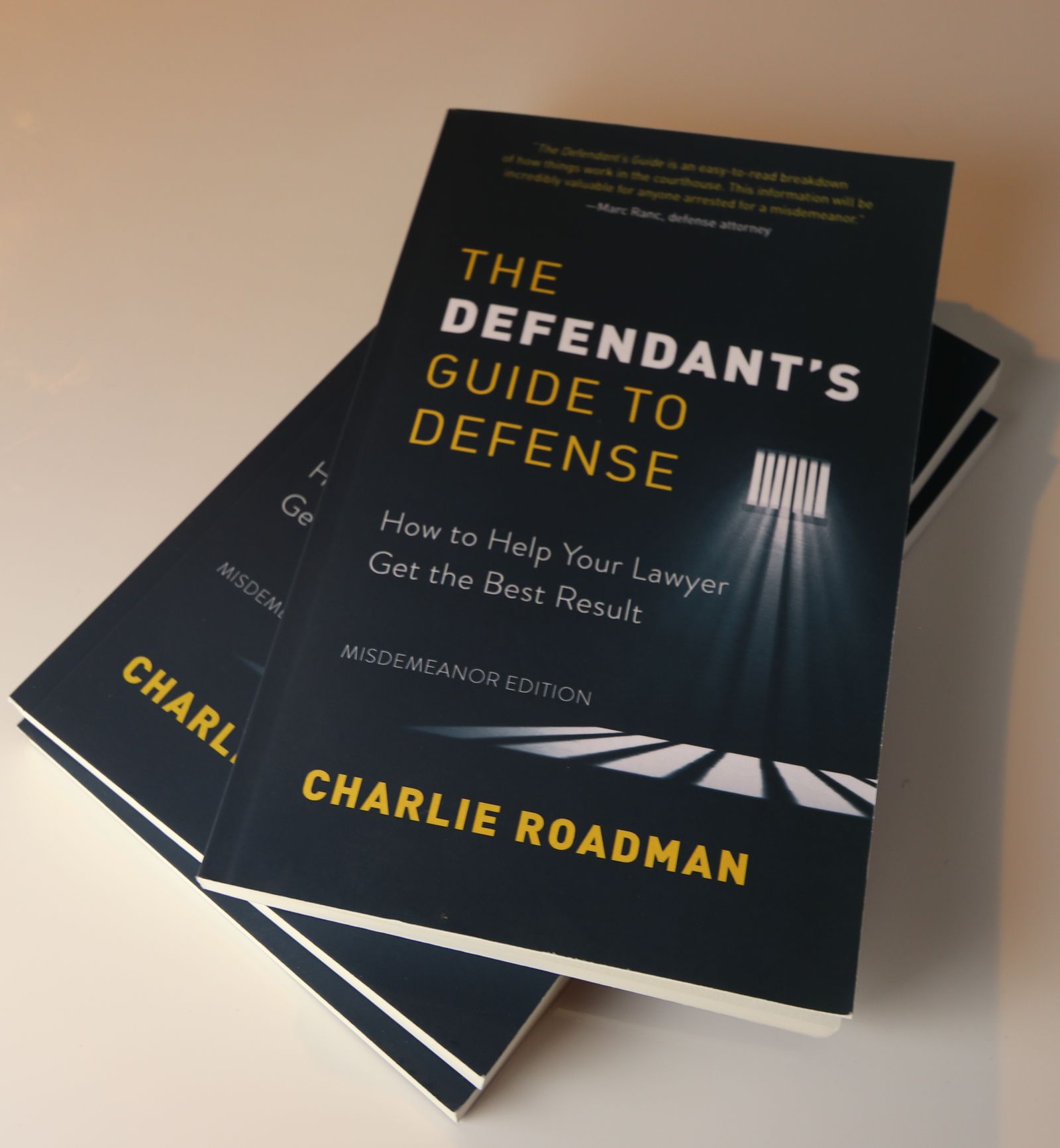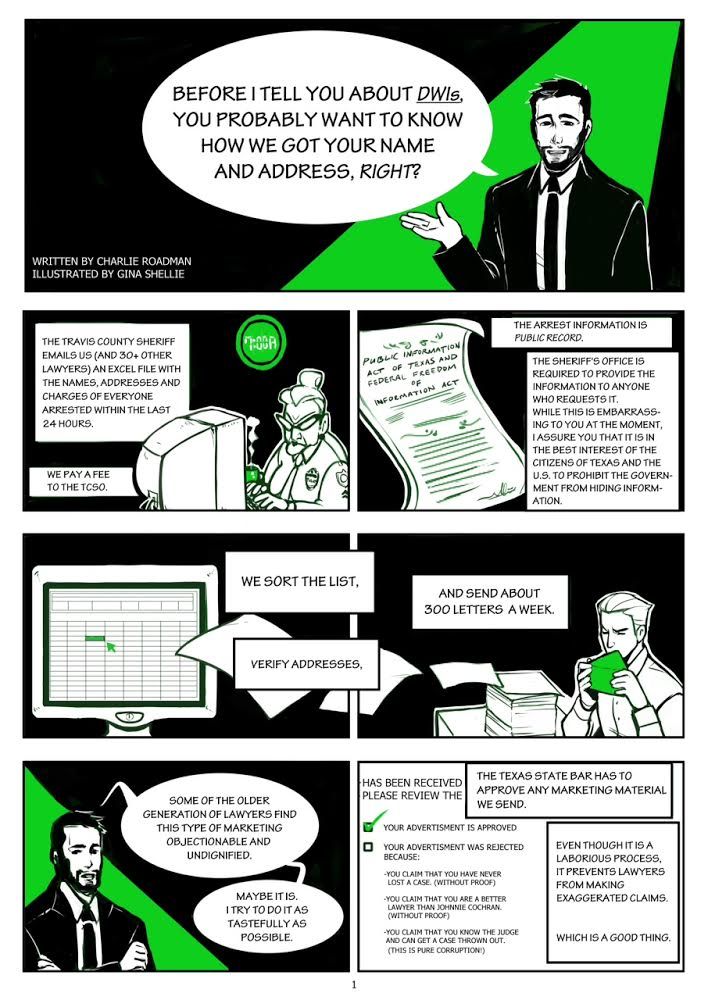Ignition Interlock Device (IID) Timeline
Welcome to Austin DWI charges with Charlie Roadman, Austin criminal defense attorney. Practical advice on dealing with an arrest.
Charlie Roadman:
Okay, Charlie Roadman here, Austin Defense Attorney. I'm here with my colleague Courtney Cobelle, we've worked together for 12 years, I think, and we've got some answers to your questions. And this is one of the common ones we get for clients that are arrested for a DWI where the bond that they get out of jail on has a condition that they have to get an ignition interlock device installed in their car, and it'll give them 30 days now to do that. But the question that our clients ask us all the time is, how long am I going to have to have this device in my car? All right, Ms. Cobelle, now there's a handful of different scenarios, but just choose the scenario and start talking.
Courtney Cobelle:
I'm going to go with the basic answer to that question is at least the time your case is pending, because it is a condition now of your bond. So a condition of your release is that you have this device installed in your car. Typically, judges aren't going to remove that requirement until the case is done. And even at that point, you may still have the device longer because of the way the case works out. If you're in pretrial diversion or you're on probation, there would be additional time that you would need that device, but it wouldn't be at that point a "bond condition" anymore.
Charlie Roadman:
Right. So it changes from a bond condition to some other...
Courtney Cobelle:
So like a condition probation or whatever.
Charlie Roadman:
Or, yeah. So as you can sort of tell, there's no way for us to give you a number in terms of months because we don't know how long. Let's talk about that first period between from the arrest till the case is resolved. That could be six months, it could be eight months, 10 months, 12 months, a year and a half. I mean, it just depends. And there's a lot of things that drag out cases. For one, if they're waiting for blood, that could take seven months just to start with. So-
Courtney Cobelle:
If they're waiting for toxicology results, it's over a year at this point.
Charlie Roadman:
Right, and so there's this pending thing. Now as defense attorneys, we try to resolve things quickly, so we're not going to drag it out, but the court system sometimes just takes a long time, and now you could possibly have that device switched out and have the portable alcohol monitor instead of the ignition interlock device. But we don't advise you to do that because that's actually even more difficult to do correctly, because you have to-
Courtney Cobelle:
Much harder to comply with and there's just a much smaller margin of error on that machine than-
Charlie Roadman:
Right, because people think, oh, I can blow sometimes, but no, you have to blow in these four windows in morning, noon, afternoon, evening, and if you miss them, any one of the windows, they can do a warrant out for you. It's unforgiving and you absolutely can't drink anything. Not while having the portable alcohol monitor. Now you're not supposed to with the ignition interlock device, but it's harder for them to catch you if you do and don't start your car within 48 hours. So to the, how long am I going to have to have this? It's a long time is the answer.
Courtney Cobelle:
Get used to it.
Charlie Roadman:
Yeah.
Courtney Cobelle:
Get over whatever hangup you have with it and just get used to it and accept it. It's going to make the time go a lot faster.
Charlie Roadman:
Because, and I'll say this, if that's a condition of your bond release, that means the judge saw something in the facts as the police told them that makes them concerned. Okay, so in the smallest first offense where the person rolled through a stop sign, there's no collision, the blood alcohol content is 0.12 or something in the medium range or anything really below 0.15, the judge won't add that as a condition, although they're different judges and they have different sort of standards, but what-
Courtney Cobelle:
Typically, that scenario wouldn't have an ignition interlock device.
Charlie Roadman:
Right, but the judges, what are some things that a judge might see in the probable cause affidavit that makes them add that device?
Courtney Cobelle:
Collision, if you're underage, they really don't like that, if you have a really high PBT or intoxilyzer result, so the judge could actually see the quantification of your intoxication because blood results won't be on the PC, but anything breath wise will be there.
Charlie Roadman:
And then criminal history.
Courtney Cobelle:
Criminal history. If you have priors, if this is your third arrest for DWI, you're probably not getting away without an IID your bond.
Charlie Roadman:
Or just some fact that's scary, right? If you're facing the wrong way on MoPac or something that's dramatically... Basically what happens is the judge looks at this and goes, if I don't add an IID to the bond condition, I'm sort of, well A, I'm not doing my job, but I'm also not protecting-
Courtney Cobelle:
The society as a whole. This person could be a risk to society if allowed to continue to drink and drive unmonitored.
Charlie Roadman:
Right? So you've got this first period until the case is resolved, you'll need that ignition interlock device. And then as you said, you could need it after that, depending on what the result of the case is. And then the other thing just to know is that you need to be perfect on that IID while this is going on, meaning zero alcohol detection at all, okay? Because the way these cases get negotiated, that's almost literally the first question the prosecutors have is, have there been any violations on the IID? So we've been doing this a long time and trust me, the best answer for me to say is no violations. And we prove it, we have documentation from the company that you have the IID from that shows that there are no violation and that will get us a much better result than if you've had some.
Courtney Cobelle:
So much better.
Charlie Roadman:
And just if you have an ignition interlock device requirement on your bond, you're not allowed to drink at all. So people sometimes get confused and they think, oh, it just means I can't start my car intoxicated. Right? No, and-
Courtney Cobelle:
They're not monitoring how much you're drinking. They're monitoring the fact that you're not supposed to be drinking.
Charlie Roadman:
Right, and so if they detect alcohol, they think that you're a risk, they think, okay, well this person isn't following rules or is not good at following rules and that we need to be extra tough on them to make sure they understand it. All right? Last thing I'll say is that as attorneys, we know that a hundred percent of our clients want that device out of their car. Okay? So now they also want the best result on their case. So we are trying to get the best result with the shortest amount of time that you have that IID in your car. That's always our goal.



